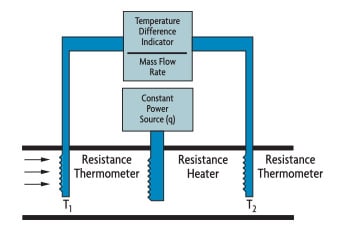mass flow controller working principle
A mass flow controller is a device used to control the flow rate by measuring the mass flow rate of fluid and gases. We aim to design and manufacture products that can be used in.

Mass Flow Controller Mfc Working Principle Bronkhorst
If the fluid has varying density then the relationship is not simple.

. They can be used in the wide variety of processes. The density of the fluid may change with temperature pressure or. The accuracy from 20 to 100 of Full Scale FS is 1 of Setpoint relative to the calibration gas.
MKS mass flow controllers have thermal and pressure based sensor technologies analog and digital communication and metal or elastomer seals. For setpoints between 2 and 20 MFC Mass Flow Devices have an accuracy of 02 FS. It consists of a small bore tube with two resistance-thermometer elements wound around the outside of the tube.
All Mass Flow Controller MFCMeter MFM work at a nominal voltage of 24V DC have a low pressure drop and do not require flow conditioning at the inlet or outlet. The circuit balance disrupts and the temperature difference ΔT between the heated RTD and the reference RTD changes. These differential pressure mass flow controllers feature two programmable.
A mass flow controller is designed and calibrated to control a specific type of liquid or gas at a particular range of flow rates. The flow signal measured by the sensor heating bridge is sent to the amplifier for amplification. The mass flow controller valve is made up of.
Only Bronkhorst offers so many different models of control valves not just. Thermal mass flow meters are most often used for the regulation of low gas flows. The thermal Mass Flow Meter or Controller is capable of providing direct measurement of mass flow as opposed to most other methods that measure volumetric flow and require separate measurements for temperature and pressure in order to calculate density and ultimately the mass flow.
The relationship between mass flow and volumetric flow is as follows. Mass flow meter principles. Thermal mass flow sensors measure the mass flowrate of gases and liquids directly.
Inherent simultaneous displays of Mass Flow Volumetric Flow Pressure and Temperature parameters promote applications in a variety of industries such as scientific and analytical applications. The amount of heat the gas absorbs is determined by the gas molecular structure. In this video from Sierra youll learn the theory and working principles of thermal dispersion mass flow technology that is used in our gas flow meters.
Operating Principle The heart of a mass flow controller is a thermal sensor. Volumetric flow rate is the mass flow rate divided by the fluid density. Gas mass flow controller working principle.
A motive force electromagnetic thermal piezo-electric motor-driven etc a resistive force spring diaphragm etc a variable flow restriction orifice-poppet orifice-balletc The motive force is activated by the control circuitry to act against the resistive force to vary the flow restriction. COVID-19 Coronavirus Information Travel health safety precautions for MKS employees partners. Thermal mass flow sensors theory of operation design.
Working principle of thermal Mass Flow Meters Controllers. Mass flow measurement relates to the amount of heat absorbed by the process gas. A mass flow controller MFC is a device used to measure and control the flow of liquids and gases.
The mass flow meter uses the principle of capillary heat transfer thermometry to measure the mass flow of gas without temperature and pressure compensation. To truly control any process you must precisely measure what is happening in the feedline in the chamber at every point then use that information in real time to keep the process precisely on-target and productive. In the case of mass flow control the output signal is continuously compared with a setpoint signal from a voltage source.
If the density is constant then the relationship is simple. It is possible to control the flow rate stably with high accuracy because it is not required to be corrected due to the change of temperature or used pressure. The sensor tube is heated by applying an electric current to the elements.
They operate either by introducing a known amount of heat into the flowing stream and measuring an associated temperature change or by maintaining a probe at a constant temperature and measuring the energy required to do so. Model 261 Thermal Mass Flow Controllers Parker Model 261 Mass Flow Controllers MFC incorporate an operating principle based on the thermodynamic properties of the process gas being measured. They control a preset flow rate reference value regardless of disturbance variables such as pressure fluctuations or temporary occurring flow resistances eg.
The circuit restores the lost energy within a second by heating the flow sensor to adjust the overheat temperature. The electrical power required to sustain this overheat denotes the mass flow signal. The MFC measures the mass flow rate of a gas and controls the flow rate according to a given setpoint.
Volumetric measurements are affected by all ambient and process conditions that influence unit volume or indirectly affect pressure drop while mass flow measurement is unaffected by changes in viscosity density. A constant proportion of gas flows through the sensor tube. All Mass Flow Controllers from Bürkert are compact devices that control the mass flow of gases.
Industrial thermal mass flow meters also known as thermal dispersion or immersible thermal mass flowmeters comprise a family of instruments for precision measurement of total mass flow rate equation of a fluid primarily. The MFC can be given a setpoint from 0 to 100 of its full scale range but is typically operated in the 10 to 90 of full scale where the best accuracy is. Mass flow control technology.
Mass Flow Rate Density x Volumetric Flow Rate Although volumetric flow under nominal conditions may be accurately calculated the process conditions and fluid properties can vary sufficiently such that it is questionable if the measured volumetric flow rate or derived using velocity represents the. As the global leader in precision fluid measurement and control mass flow meter manufacturer. Mass Flow Controller theory.
DPC mass flow controllers provide the highest accuracy and fastest control of mass flow rates of process gases. Any deviations between setpoint signal and measured signal are translated into a solenoid control valve adjustment until the two signals are identical. DPC Mass Flow Controller.
Displays of Mass and Volumetric Flows as well as Pressure and Temperature parameters and built-in Multi-Gas functionality facilitate the selection of up to 90 different gases and mixtures. Aalborg Instruments DPC series precision digital mass flow controllers provide accurate and stable control of mass flow rate of process gases. As a result of filter dirt.
How does a mass flow controller work.
Mass Flow Controller C F Fcon Co Ltd
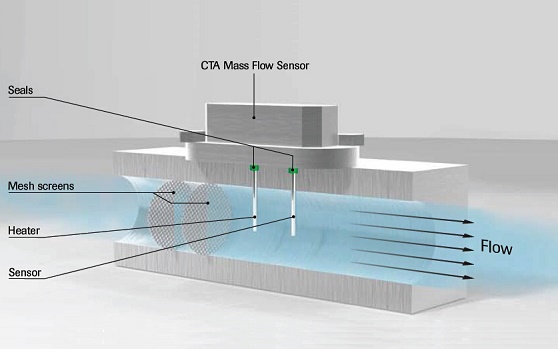
Thermal Mass Flow Measurement Principle For Gases Bronkhorst
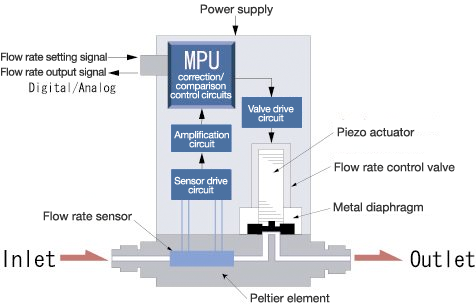
Horiba Fluid Measurement Control Mass Flow Controller
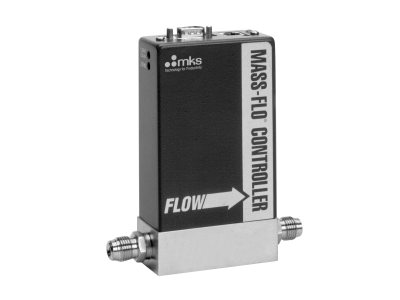
General Purpose 10 Sccm To 20 Slm Mass Flow Controller

Mass Stream Thermal Mass Flow Controller Principle Of Operation Youtube
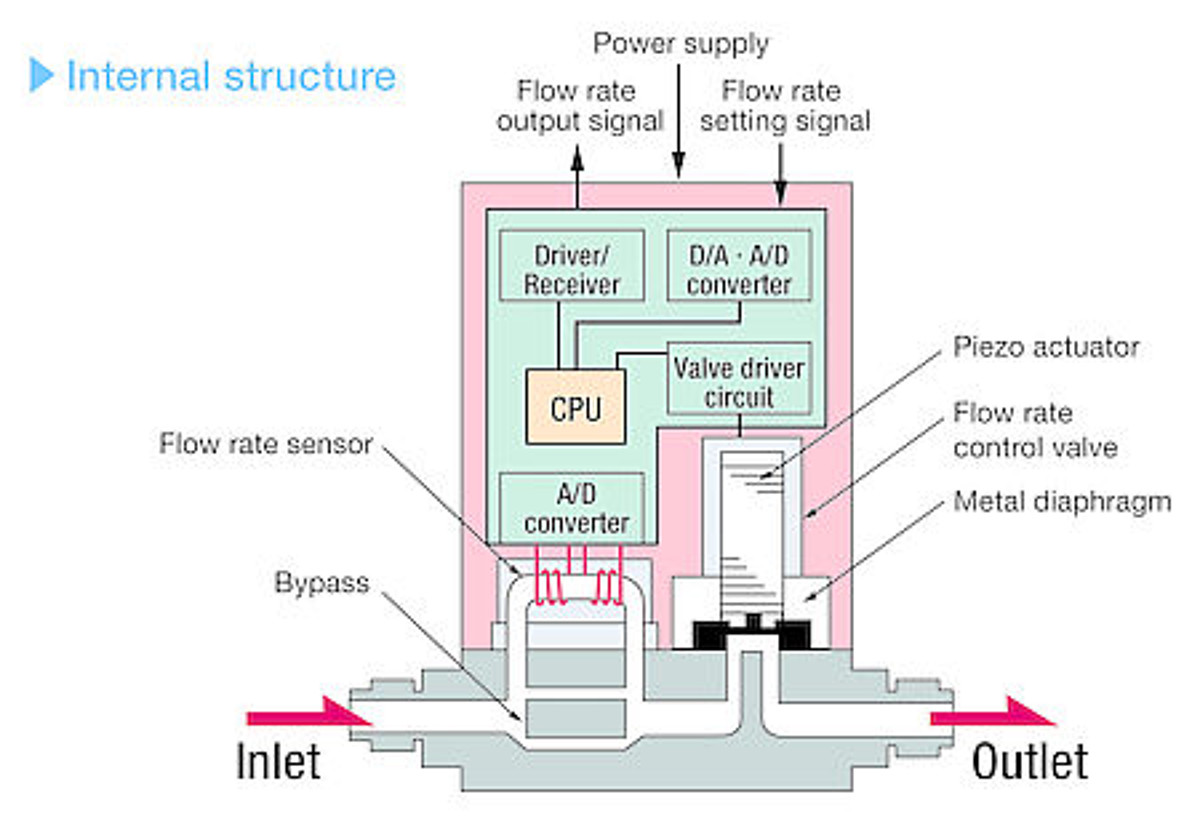
Horiba Fluid Measurement Control Mass Flow Controller
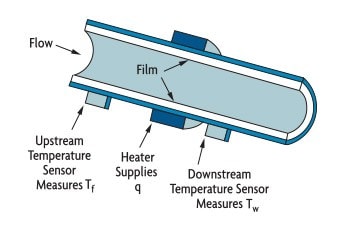
Thermal Mass Flow Sensors What Is Their Working Principle

Select The Best Flow Meter For Your Application Bronkhorst

How A Mass Flow Controller Works Youtube
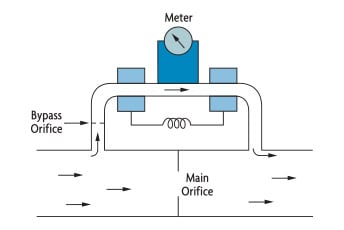
Thermal Mass Flow Sensors What Is Their Working Principle
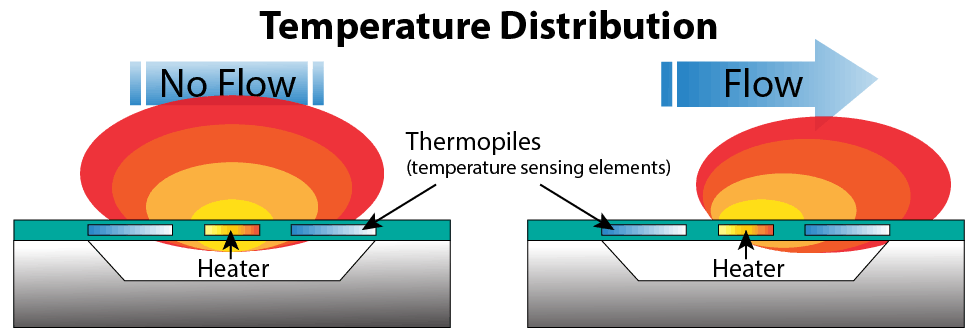
Comparing Gas Flow Instrument Technologies Alicat Scientific
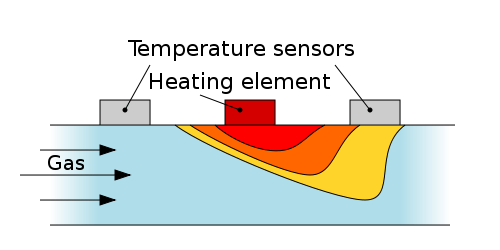
Thermal Mass Flow Meter Working Principle Instrumentationtools
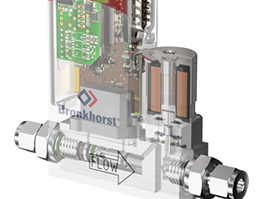
Mass Flow Controller Mfc Working Principle Bronkhorst

Product Characteristic Of Digital Mass Flow Controller Horiba
Mass Flow Controller C F Fcon Co Ltd

Coriolis Mass Flow Measuring Principle Bronkhorst
.jpg)
